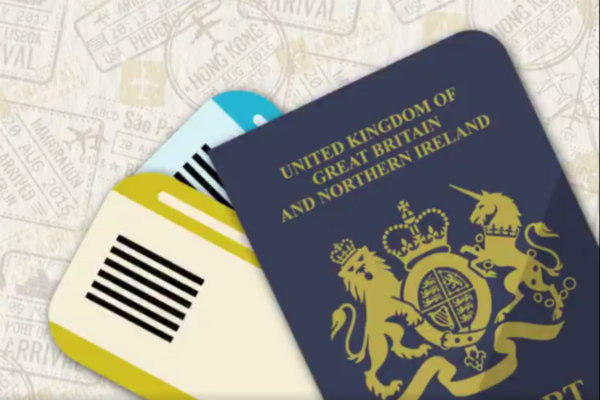Everything you need to know about the upcoming EU border rules
Over the next 12 to 18 months a raft of new European border rules are set to come into effect, changing the way third-country nationals including UK passport holders travel to 30 countries.
These include the entry-exit scheme (EES), a biometric border check, as well as the related Etias (European Travel Information and Authorisation System) – a US Esta-style visa waiver.
All these changes will impact British travellers as the UK has obviously become a third country post-Brexit – meaning the new rules will apply to all nationals, including holidaymakers. To help clients navigate through the new system, here is everything travel agents need to know about the rules.
Why is the EU doing this?
The European Commission first introduced the concept of strengthening its external borders and screening third-country nationals in April 2016 as a way to protect the bloc from external threats, such as terrorism and irregular migration.
Following negotiations with the EU Parliament and EU Council, the EES regulation was adopted in November 2017, while the regulation needed to create the Etias scheme came into force in October 2018.
Which countries will be involved?
Not all European Union members will adopt the EES/Etias schemes as it only applies to countries in the Schengen area. Ireland, for example, will not be involved in the project as it stands outside of the area meanwhile Cyprus – which is not part of Schengen – will adopt the Etias scheme and not the EES.
Here’s a full list of participants: Austria, Belgium, Bulgaria, Croatia, Czech Republic, Denmark, Estonia, Finland, France, Germany, Greece, Hungary, Iceland, Italy, Latvia, Liechtenstein, Lithuania, Luxembourg, Malta, Netherlands, Norway, Poland, Portugal, Romania, Slovakia, Slovenia, Spain, Sweden and Switzerland.
What is the EU entry-exit scheme (EES)?
The EES is “an automated IT system” that will automatically register travellers from the UK and other non-EU countries, using biometric checks when they cross external EU borders. Currently, it is scheduled to start operating in autumn 2024 after multiple delays.
The system will replace the current passport stamping by registering a person’s information – including name, travel document type and biometric information, such as fingerprints and facial images.
The EES will also record if a traveller has been refused entry before or has overstayed their welcome in the bloc.
What is Etias?
Etias is an Esta-style visa waiver scheme which will allow people from 60 visa-exempt countries, including the UK, to enter 30 European countries from mid-2025 at the earliest.
The scheme, which costs €7 (£6) per person, will be linked to each traveller’s passports and will be valid for up to three years or until the passport expires, allowing third-country nationals to stay in the Schengen zone for up to 90 days in a six-month period.
Etias, nevertheless, doesn’t guarantee entrance into the bloc, as upon arrival international tourists will still have to be checked by border guards.
Who needs to apply?
As a result of the UK’s departure from the EU, British holidaymakers are among the 1.4 billion travellers who will have to apply to the scheme when it comes into effect, filling in the application through the Etias website, which is not in operation at the moment.
Nevertheless, not all Brits will need to apply for the scheme as those who were already living in Europe before Brexit will be exempt.
Other exceptions include nationals from the likes of Monaco, Andorra, Ireland, San Marino and the Vatican as well as stateless people and holders of a residence permit issued by an Etias-requiring country.
What are the issues and processes around it?
Signed off by the European Parliament in July 2018, Etias’s launch has been postponed several times over the past few years following issues with the implementation of the EES.
The system – due to be originally introduced in 2022 – was pushed back to May 2023 before EU authorities said it would be implemented from the end of this year.
However, the European Council announced in November the EES would become operational from autumn 2024.
What do agents need to know?
According to Abta, agents need to prepare themselves for the change in regulation, informing customers about the requirements as well as informing them about the rise in fake websites.
“If asked, agents should let customers know that Etias is not scheduled for introduction until May 2025 and will apply to all non-EU passport holders, which clearly will include British passport holders,” a spokesperson told TTG.
“Like all entry requirements, travel companies should make customers aware of the need for an Etias at the time of booking.”
Agents will also need to urge their clients to fill in their applications first – even before discussing flight and accommodation – as the system could take up to four days to process an application.
What are the risks?
In mid-November, Advantage Travel Partnership boss Julia Lo Bue-Said warned against the rise in fake Etias websites, calling on the EU to launch a “strong public awareness campaign” to help tourists not fall prey to scammers.
The EU has reported “a rapid emergence” of fake Etias websites, in the same way as those that plague the US Esta application process.
“Travellers should be particularly concerned about this,” said Izabella Cooper, senior stakeholder management officer at Frontex, the EU border agency. “Some websites are offering an early-bird discount. This raises a lot of alarm bells.”
According to Lo Bue-Said, it’s important that consumers and agents know “there is only one official Etias website for travellers to use and although the website is already operating it will not allow people to apply as the scheme has been pushed back to 2025”.
Sign up for weekday travel news and analysis straight to your inbox

Ilaria Grasso Macola
Supplier Directory
Find contacts for 260+ travel suppliers. Type name, company or destination.
















